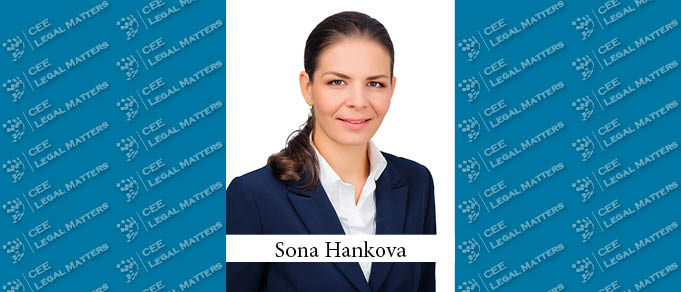Since the onset of the COVID-19 crisis, the Slovak Labor Code has changed several times. In 2021, five amendments were adopted, and new changes are expected in 2022. Although we observe progressive changes, the labor code remains quite rigid. Its provisions on remote work do not distinguish between blue-collar and white-collar jobs, which makes their implementation more demanding. Remote working, constant changes to COVID-19 pandemic rules, vaccination, health and safety, data protection, and employment termination rules – these have been the most pressing issues that have led employers to turn to their legal advisors.
Employers continued to analyze the benefits of working from home for their operating model. They have been updating their employment documents to comply with new requirements. In particular, the labor code amendment effective as of March 1, 2021, established better working conditions for digital nomads. However, remote work still raises a host of legal and administrative challenges. Many practical questions have arisen concerning the manner and extent to which employees’ costs should be reimbursed for working remotely, as well as the tax aspects of working remotely from abroad (the risk of becoming a permanent establishment and the obligation to pay income tax and contributions to social insurance schemes abroad).
At the same time, many employers have postponed updating their remote working documentation templates due to legal uncertainties. They rely on temporary measures introduced by lawmakers in response to the pandemic. These rules currently allow employers to order home-working, and employees to request it. However, when the pandemic retreats, an important question will remain: does the labor code allow remote working without the employee’s consent? After the pandemic measures expire, remote working will not be possible without reaching an agreement with the employee.
In 2021, the new topic of vaccination and testing arose, which kept employers busy. Slovakia has a low vaccination rate of only about 48%. Lawmakers required employers to ensure their unvaccinated employees are regularly tested prior to entering the workplace. This rule left many open practical questions for employers to resolve and has been abolished only recently.
The pandemic also encouraged employers to consider means for reducing work-related health problems in the workforce. In Slovakia, employers must ensure that the workplace (including remote workspaces) complies with national health and safety regulations. Employers often asked what health and safety standards applied to remote workers. Some employers went beyond the mandatory minimum as regards mental health: they put more emphasis on implementing adequate systems to support the healthy work practices, training, life balance, and mental well-being of their employees.
Remote working has also been associated with an increased risk of cyberattacks, data leaks, and employee fraud. As part of their ESG programs, employers are increasingly addressing issues such as transparency, risk governance, compliance and ethics, fair working conditions, and diversity and inclusion.
What to Expect in 2022
The legislator has introduced a new legal instrument – short-time work (Kurzarbeit) – into Slovak law, following the Austrian model. It will enter into force on March 1, 2022 (later than originally planned), and will be available for employers even after the pandemic.
By August 1, 2022, the Slovak Republic must transpose into law the EU Directives on transparent and predictable working conditions and on work-life balance for persons with caring responsibilities. At the time of writing, the amendments to the labor code are still in the early legislative stages. What can be expected? New provisions are proposed to ensure a minimum of work predictability and employees’ right to request transfer to another form of employment. A welcome change is that the employer will be allowed to provide written information on working conditions in electronic form. However, certain communications between employers and employees still cannot be conducted electronically (e.g., delivery of a termination notice). Many other issues that both employers and employees are struggling with in practice are also to be addressed.
The COVID-19 pandemic has forced employers and employees to adopt a new vision for work. The pandemic showed the importance of the social element of ESG. It is now clear that many employers wish to continue with remote working, or at least a hybrid model of remote and onsite working, even after the COVID-19 interim measures expire.
By Sona Hankova, Partner, CMS Slovakia
This article was written before the advent of the war in Ukraine and was originally published in Issue 9.2 of the CEE Legal Matters Magazine on March 1, 2022. More current articles on developments in Ukraine can be found in our #StandWithUkraine section. If you would like to receive a hard copy of the magazine, you can subscribe here.















